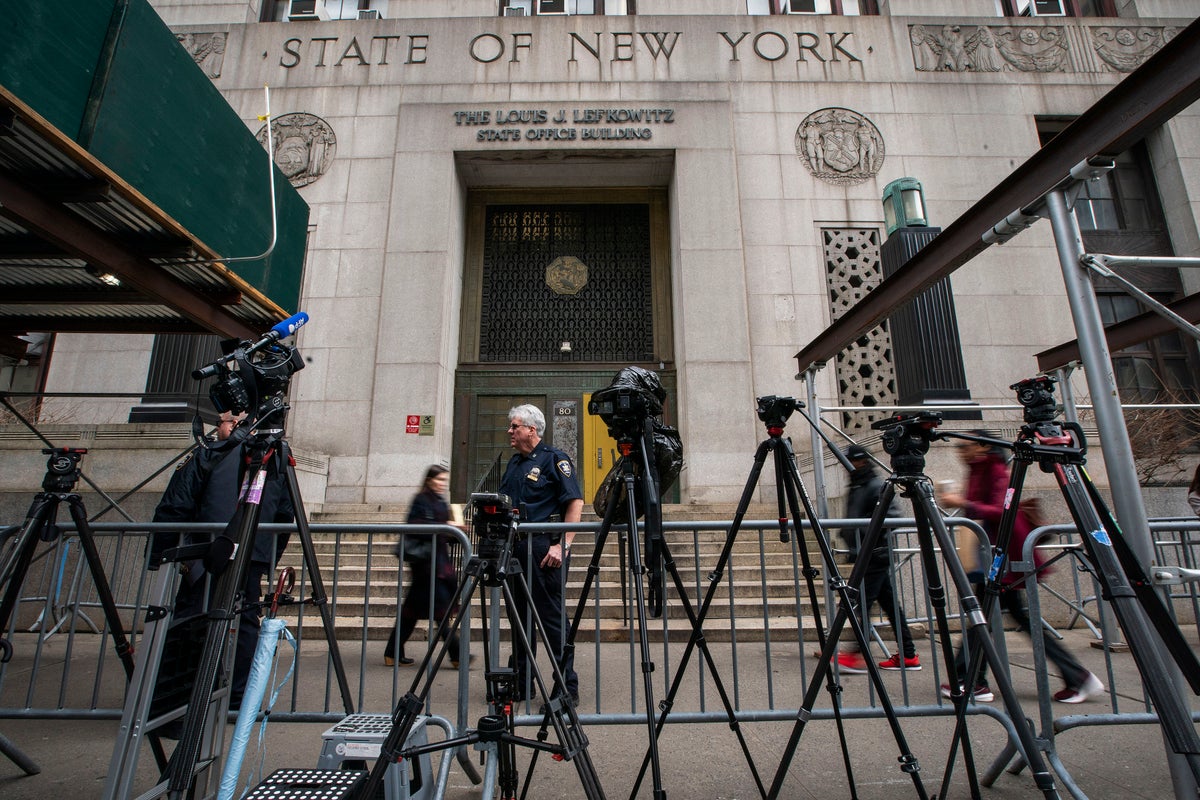
The Manhattan grand jury investigating Donald Trump over hush money payments planned to hear testimony on other matters Thursday, seemingly further delaying a vote on whether or not to indict the former president, according to a person familiar with the matter.
There was no immediate explanation for why the grand jury, which did not meet at all on Wednesday, would not take up the Trump matter during its scheduled Thursday session. It was also not clear when or if prosecutors might resume presenting evidence before the panel or when they might ask the group for a decision on bringing historic criminal charges.
The panel is an investigative grand jury, meaning it hears other cases beyond the one centered on hush money payments during the 2016 campaign that were meant to silence the claims of a porn actor who said she had a sexual encounter with Trump years earlier. The person who confirmed that the grand jury would be hearing other matters was not authorized to discuss it and spoke on condition of anonymity.
Grand jury investigations are shrouded in secrecy, with prosecutors prevented by law from sharing any details of what takes place behind closed doors. But these proceedings have captivated public attention on a minute-by-minute basis, each development magnified because the presumed target is a former president and because Trump himself stoked expectations of imminent action by stating without evidence last weekend that he expected to be arrested on Tuesday. That did not happen.
The limited snapshots of the investigation have largely come from witnesses and their attorneys, who don't share the same secrecy obligation as prosecutors. Michael Cohen, Trump's former lawyer and fixer and a key government witness in this case, has spoken publicly about his appearances, as has another recent witness, Robert Costello, an attorney who presented testimony aimed at undermining Cohen's credibility.
But the district attorney's office, which is leading the investigation, has offered no public indication of its timing. In a letter sent Thursday to Republican lawmakers who sought documents and testimony about the investigation, the office's general counsel, Leslie Dudek, wrote that Trump had last weekend “created a false expectation” on the timing of an arrest, and Dudek reiterated prosecutors' obligation to preserve the secrecy of the investigation.
"These confidentiality provisions exist to protect the interests of the various participants in the criminal process — the defendant, the witnesses and members of the grand jury — as well as the integrity of the grand jury proceeding itself," the letter said.
____
Tucker reported from Washington.







